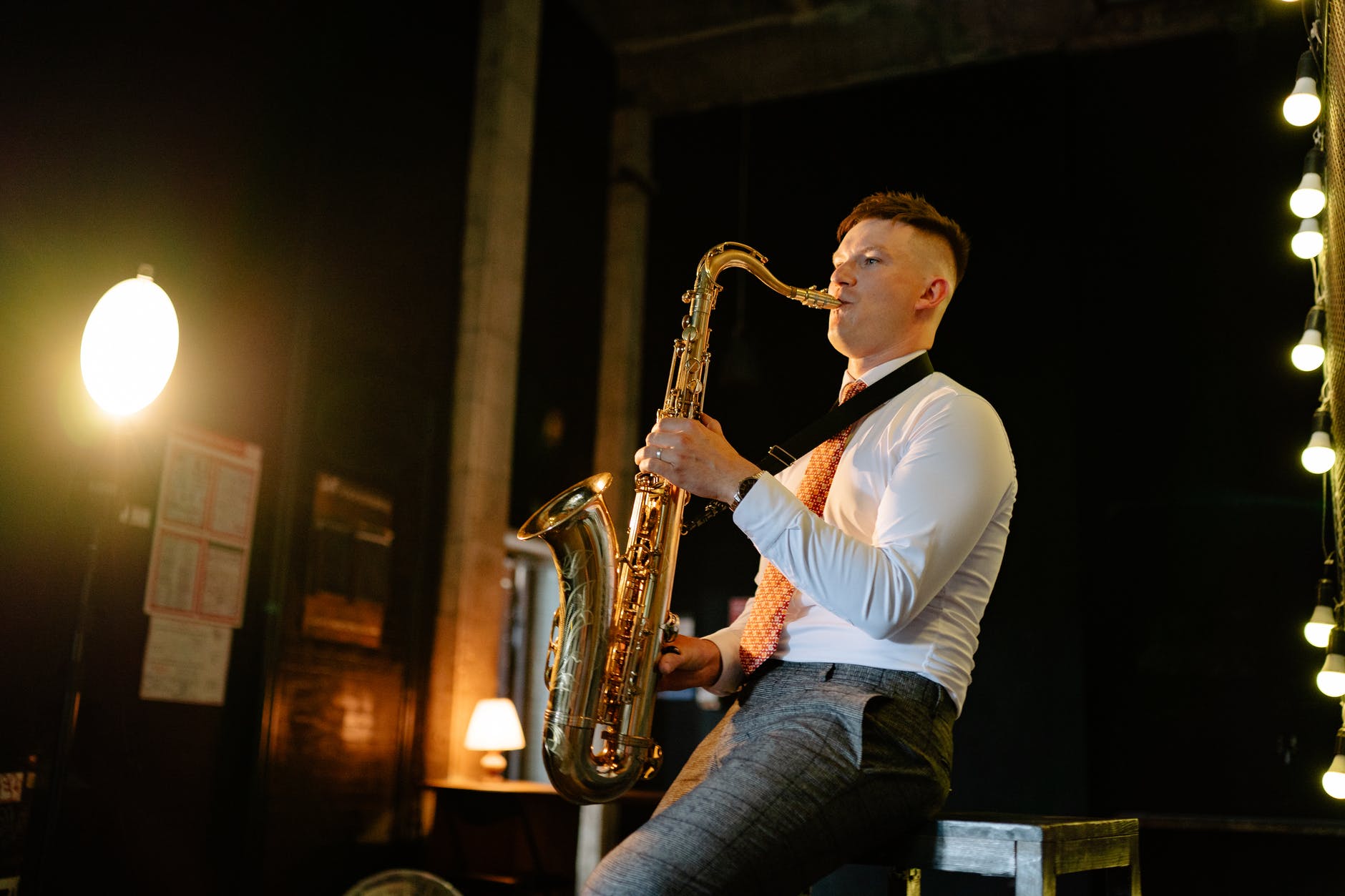Listen to this post here.
Playing a musical instrument is rewarding in different ways. It can help you become more disciplined and may help improve some cognitive brain functions, as well as provide you with an outlet for your creativity. On top of that, it can serve to help you manage stress and give you a new way to express your emotions. If you are committed and can hone your skills, you may be able to build a successful music career. Check out this post, if you want to find out more about the benefits and drawbacks of learning to play an instrument.
You can know all about the upsides of taking up this hobby, but it can be tricky to know where to start when there are a plethora of great instruments to play. This can be an especially difficult choice for a novice. To help you find the right instrument for you, we’ll list some of the most beginner-friendly ones, so you can choose an instrument you’re inspired to play.
Let’s get into it.
9 best musical instruments to play
There are of course many instruments that don’t get a mention on this list, but here are 9 of the most beginner-friendly for you to look at, plus some pros and cons for each.
The acoustic guitar
This is one of the most played instruments in the world. It’s great for young learners as it’s easier to master than its electric counterpart. They come in a variety of styles and sizes, so you should be able to find one that suits you. Another point in its favour is that it compliments other musical instruments but also sounds fantastic on its own.
Before we look at why you might want to make playing the piano your new hobby, here are a few pros and cons of learning this instrument.
Pros
- It’s one of the easiest musical instruments to master.
- It can sharpen your mind.
- Playing it can help reduce stress levels.
- It can be a good way to develop your self-confidence.
Cons
- The strings of an acoustic guitar are heavy, which could present difficulties when learning the correct fingering as a novice.
- It is more fragile than its electric counterpart.
- Acoustic guitars tend to produce a buzzing sound because the strings have an increased gauge.
Next, let’s turn to the piano.
The piano
It may not be as convenient to learn the piano as it is to learn the guitar because it takes up quite a lot of space. Pianos can also cost a pretty penny. On top of that, it will need tuning by a professional before you get started. You’ll need a couple of lessons to help you learn the basics.
If you’re interested in writing your own music, you can have fun with platforms like Flat.io, a platform which can help you learn alongside others and compose music. Learning the piano gives you a chance to gain in-depth knowledge of music theory, which you can then use to learn many other instruments.
Pros
- Can help improve your focus.
- Teaches perseverance and patience as you work to master it.
- Can increase your emotional intelligence.
- Gives you an outlet for your creativity and a new way to express it.
- Can improve your memory.
- Can help you become more confident as you learn to play for an audience.
Cons
- A good piano is costly.
- It takes up space and is not easy to transport.
- Long hours at the piano can cause back and neck strain.
- You need to put in a lot of practice to master it.
The ukulele

If you want to learn a musical instrument that takes up a bit less space than a piano, why not try the ukulele?
This is a fancy little instrument that you can easily carry around with you. It looks like a little four-stringed guitar. The strings are made of nylon which is easier to play with than steel or nickel strings. It won’t take you long to learn to play some chords and simple songs. It’s got a lovely tone that can be quite soothing too.
Pros
- Comfortable and simple to play.
- Affordable.
Cons
- Takes a lot of practice to master.
Let’s turn to the violin.
The violin
The role of the violin in the development of music through the centuries cannot be overstated. If you’re a beginner, a classic violin may be the best choice. Like guitars, they come in a range of sizes so you can find one that’s right for you. If you stick with it, you can have great fun learning the violin.
Pros
- Lighter and more portable than other instruments like the cello or piano.
- Cheaper than bigger stringed instruments.
- Can be a satisfying challenge to take on.
- A good instrument to play as part of a duet or orchestra.
Cons
- Playing the violin involves several recurrent costs, for strings and bow re-hairs.
- You will make slow progress, particularly if you don’t have a tutor.
- Violin lessons are pricey, and you’ll need a lot of them to master the instrument.
- You need to be a bit of a perfectionist.
- It will take serious commitment and practice to sound good.
Let’s take a look at the trumpet if you don’t fancy choosing a stringed instrument.
The trumpet
This musical instrument has existed since 1500 BC and has proved a great tool for innovation. It is the smallest instrument in the brass section of an orchestra. You will need a lot of guidance if you do choose to learn the trumpet because you will need to learn to control your breath as well as the keys. Still, you can have a fun time if you make it your new hobby.
Pros
- Easily portable because it’s small.
- Quite cheap to rent.
- The skills needed to play one can help you play other brass instruments too.
- It’s an orchestral instrument but is also a jazz instrument.
- It is one of the most vital instruments in a band.
Cons
- This is the most difficult of the brass instruments to play proficiently.
- Some people may find the trumpet tricky to hold.
- There is quite a lot of resistance when you blow through it.
The drums
If you learn the drums, you can produce rhythms that all other musical instruments take their tempo from. It’s a great instrument to play, but you need to be careful to avoid some of the most common newbie mistakes. Start with a regular drumroll and some simple beats before you take on more complex patterns.
Pros
- Can improve personal discipline.
- It’s a wonderful way to express your emotions.
- Can help you relax.
- It helps you express and unlock your creativity.
- Can be a way of improving your reaction times.
Cons
- As the drummer, you set the tempo, so everyone is counting on you.
- You are liable to get calluses if you play the drums a lot.
- It can be hard to keep hold of your sticks.
The cello
The cello is known for being able to produce melancholy, mournful, emotional sounds. It’s a fantastic solo instrument and can also be played alongside violins and violas to produce a beautiful, layered sound. You need to be determined and you need a good tutor to learn the cello. Nevertheless, this can be a satisfying challenge to overcome.
Here are a few pros and cons of playing the cello before we move on to the saxophone.
Pros
- You sit while you play.
- It’s an integral part of an orchestra.
- It’s not as large as a Double Bass.
Cons
- It’s larger than the violin, so it’s more difficult to transport.
- Will take time to learn how to control the bow and develop good technique.
- It’s an expensive instrument if you want one that’s of a professional standard.
Now let’s explore what a saxophone has going for it.
The saxophone

This is a very versatile instrument known for its role in everything from Jazz to Rock and the Blues. You will have heard it on your favourite R&B tracks too. It comes in various types, alto, baritone, tenor, and soprano. The easiest of these to start with is an alto saxophone.
Pros
- It’s quite easy to learn.
- It has great versatility.
- This instrument is very sociable.
- Can help you relax.
- Can enhance your memory.
- You can sound great as a soloist or as part of a band.
Cons
- It can take you a while to sound good.
- You need a lot of practice to master it, and it will take a long time to do so.
- You need to maintain your instrument.
The harmonica
This is a beginner-friendly instrument, which has a place in Blues music, Folk music, and Country music. You may have heard it played in Rock Bands too. The harmonica is light and easy to carry, as well as affordable. This means you can broaden the range of keys you play by buying a few harmonicas.
Pros
- Can help you learn to improve your breathing.
- Improve your ability to focus.
- Reduce anxiety and stress.
- Can help regulate your blood pressure and heart rate.
Cons
- Chromatic harmonicas are more expensive than diatonic ones.
- There are a limited number of chords available.
- Can be tricky to master.
Wrapping up
We hope you now have a better idea of which instrument you’d like to try. Of course, you need not limit your choices to one of the 9 discussed here if you’re feeling adventurous. These are just the best musical instruments for beginners, as they are considered the easiest to master.
If you’re still unsure which instrument you would like to play, it might be a good idea to rent one you fancy trying. That way you can find out whether it suits you.
No matter which one you decide on, enjoy making music. With luck, you could boost your ability to focus and give your brain a good workout while you’re at it.


Good day! Do you use Twitter? I’d like to follow you if that would
be okay. I’m undoubtedly enjoying your blog and look forward to new updates.
LikeLike
Hi there,
Thank you for that lovely comment. I’m glad you are enjoying it. If you would like to see a particular productivity-related topic covered, let me know and I’ll be happy to write something that would explore it. The above link should take you to my Twitter handle. I’m not particularly active on there but would appreciate a follow. Thanks again!
LikeLike